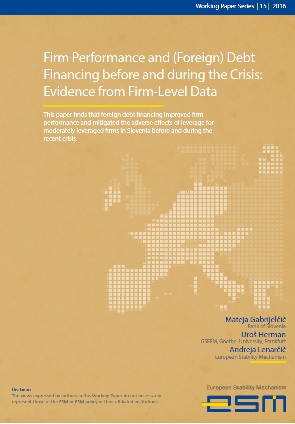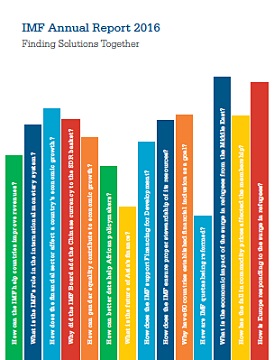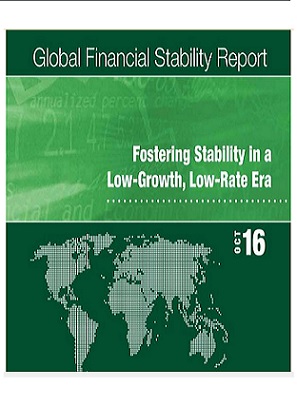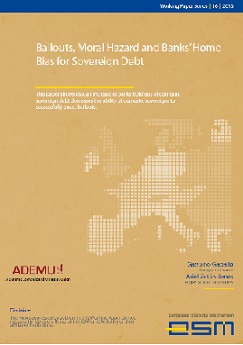Garriga, Carlos, Kydland, Finn, Šustek, Roman, (2016), “Keeping policy rates persistently low: Implications for the monetary transmission mechanism”, VoxEu, 16 October Central banks responded to the financial crisis by cutting policy rates to prevent deflation and curb the decline in economic activity, but these responses have been anything but temporary. This column explores whether the sticky price channel is still relevant in an environment of persistently low rates. Although the …Read More
Firm Performance and (Foreign) Debt Financing before and during the Crisis: Evidence from Firm-Level Data
Gabrijelčič, Mateja, Herman, Uroš, Lenarčič, Andreja, (2016), “Firm Performance and (Foreign) Debt Financing before and during the Crisis: Evidence from Firm-Level Data“, ESM Working Paper Series, July We study the effects of financial leverage and foreign financing on firm performance before and during the recent crisis, using a large panel of Slovenian companies. We find a significant negative impact of leverage on firm performance, even when we explicitly control for the reverse causality between …Read More
ECB bank supervision cannot tackle debt restructuring single-handedly
Lehmann, Alexander, (2016), “ECB bank supervision cannot tackle debt restructuring single-handedly”, Bruegel, 13 October The European Central Bank has begun to tackle a key symptom of banking sector fragility with its proposed guidelines on banks’ management of non-performing loans (NPLs). But detailed targets for the reduction of NPLs and prescriptions for the internal governance and management of distressed assets also represent a new style of more intrusive supervision. For the …Read More
Fiscal crises as pretexts for quantitative easing
Reis, Ricardo, (2016), “Fiscal crises as pretexts for quantitative easing”, VoxEu, 14 October Conventional economic theory predicts that, outside of a financial crisis, quantitative easing should have no effect on real outcomes or inflation. This column proposes two theoretical channels through which quantitative easing might also work in a fiscal crisis. In this case, quantitative easing can be a valuable tool because it can control the path of inflation over …Read More
Europe after Merkel
Mody, Ashoka, (2016), “Europe after Merkel”, Project Syndicate, 13 October Next year, Germany will hold a federal election, and the new Bundestag will choose the country’s next chancellor. Whether or not Angela Merkel retains the role – at the moment, things are not looking good for her or her Christian Democratic Union (CDU) – one thing is certain: Germany’s chancellor will no longer be de facto Chancellor of Europe. That will …Read More
International Monetary Fund Annual Report 2016
International Monetary Fund, (2016), “International Monetary Fund Annual Report 2016”, IMF, September The year was marked by difficult challenges and milestone achievements. To reinvigorate modest growth at a time of uncertainty about a complicated global economy, the IMF membership endorsed a three-pronged approach of monetary, fiscal, and structural policies to get the world economy back on a stronger and safer growth track. Highlights of the IMF’s work during the year …Read More
Global Financial Stability Report: Fostering Stability in a Low-Growth, Low-Rate Era
International Monetary Fund, (2016), “Global Financial Stability Report: Fostering Stability in a Low-Growth, Low-Rate Era”, IMF, October The current report finds that short-term risks to global financial stability have abated since April 2016. The rise of commodity prices from their lows, along with the ongoing adjustments in emerging markets, has supported a recovery in capital flows. In advanced economies, weaker growth has been mitigated by the prospect of further monetary …Read More
Stress testing the EU fiscal framework
Masten, Igor, Grdović Gnip, Ana, (2016), “Stress testing the EU fiscal framework”, VoxEU, 13 October Fiscal policies in European Economic and Monetary Union states are being reinforced. This column argues that the cyclically adjusted budget balance will be an imprecise tool for measuring fiscal discipline, and structural deficit rules limits are too stringent. If the official methodology is used to trigger corrective fiscal contractions, it may increase macroeconomic instability. Relevant Posts …Read More
Bailouts, Moral Hazard and Banks’ Home Bias for Sovereign Debt
Gaballo, Gaetano, Zetlin-Jones, Ariel, (2016), “Bailouts, Moral Hazard and Banks’ Home Bias for Sovereign Debt“, ESM Working Paper Series, July We show that an increase in banks’ holdings of domestic sovereign debt decreases the ability of domestic sovereigns to successfully enact bailouts. When sovereigns finance bailouts with newly issued debt and the price of sovereign debt is sensitive to unanticipated debt issues, then bailouts dilute the value of banks’ sovereign debt holdings rendering bailouts less …Read More
Fiscal decentralisation and income inequality
Stossberg, Sibylle, Bartolini, David, Blöchliger, Hansjörg, (2016), “Fiscal decentralisation and income inequality”, OECD Economics Department Working Papers No. 1331, 11 October This paper investigates the relationship between fiscal decentralisation and economy-wide disposable income inequality. Drawing on a dataset of up to 20 OECD countries over a period from 1996 to 2011, a regression analysis is performed, relating several indicators of national income inequality and a wide array of fiscal decentralisation indicators. …Read More








